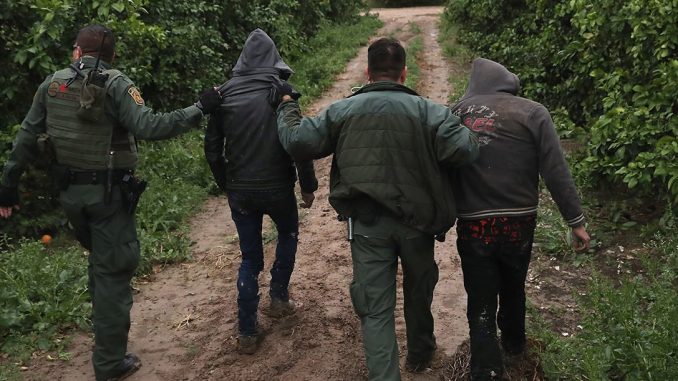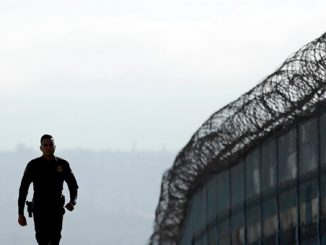
Rodney Scott, the chief patrol agent in the Border Patrol’s San Diego Sector, said earlier this month that California’s statewide sanctuary law was undermining normal cooperation between his agency and local law enforcement.
In a little-reported declaration in support of the Department of Justice’s March 6 lawsuit against California, Scott recalled multiple instances in which a Border Patrol agent in the San Diego sector determined that releasing a criminal alien to a local law enforcement would likely result in the person being released without notification to federal authorities.
“In each instance, the Border Patrol Agent determined it was not appropriate, consistent with his or her federal responsibilities to ensure the enforcement of immigration law, to release a criminal alien to the state and local law enforcement,” Scott said in a court declaration. “This was because, although the alien was subject to removal, if released to California law enforcement, the alien would ultimately be released into the public.”
Passed with widespread support among leading California Democrats, SB54 is the centerpiece of the state’s resistance to the Trump administration’s crackdown on illegal immigration. It was among three California laws the DOJ challenged in its lawsuit, which argues the state’s sanctuary policies amount to a “significant intrusion into federal enforcement of the immigration laws.”
After fewer than four months in effect, SB54 has begun to harm working relationships between local and federal law enforcement in southern California, according to Scott’s declaration. Particularly troubling, he says, is that state and local officers are less willing to respond to Border Patrol agents’ calls for assistance.
In one example, the El Cajon Police Department refused to help Border Patrol agents pursue three suspects who were fleeing in a vehicle, despite multiple requests form Border Patrol dispatch.
“After the event, it was determined that the officer declined the request to assist presuming it was an immigration matter, as opposed to a fleeing subject whose identity/immigration status was not known at the time of the incident,” Scott wrote. “This declination for assistance occurred even though it involved a vehicle that failed to yield, endangering federal law enforcement and the public while traveling on a California Interstate and highway within their jurisdiction.”
Other California sanctuary laws have impacted the Border Patrol’s ability to locate illegal aliens, Scott says. One is Assembly Bill 450, a law enacted in October that, among other provisions, prevents businesses from granting border agents access to “nonpublic” areas of their property unless the agent has a judicial warrant.
Scott says AB 450 has interfered with longstanding working relationships between Border Patrol agents and local businesses, reducing agents’ ability to observe human smuggling and other cross-border crimes.
“If employers are not able to provide such consensual access, Border Patrol’s ability to detect and interdict real time illegal activity, ranging from criminal activity to the smuggling of narcotics to potential terrorists seeking to enter the United States, along the border will be diminished,” Scott said.
AB 450 was another of the laws targeted in DOJ’s lawsuit, the first to be filed against a local or state government over immigration enforcement issues. The Trump administration argues that successful enforcement of the Immigration and Nationality Act assumes cooperation between private companies and federal, state, and local agencies.







Be the first to comment